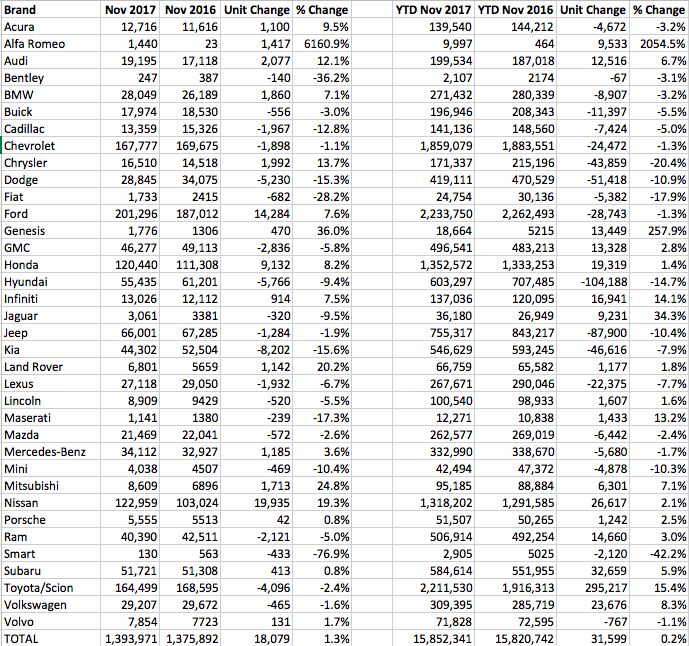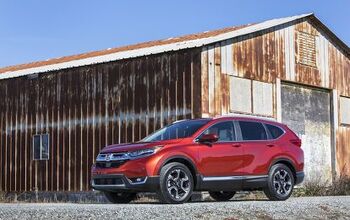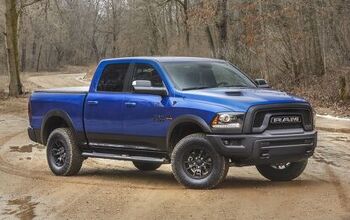U.S. Auto Sales Brand-by-Brand Results - November 2017 YTD

With a single month remaining in 2017, automakers are ramping up sales efforts in the hopes of finishing the year on a high note. At this time of year, most stores deploy all the tools in their arsenal, from magical incentives to generous trade-in values, in a bid to compete with consumer dollars generally spent elsewhere during December.
The preceding month was solid but not stunning, leading some to openly wonder if this’ll be the first year since the Bankruptcy Days that total industry sales will be a few units less than the previous 12 months.
Absent of Nissan’s numbers as of this writing (thanks what the company described as a “significant IT systems outage”), the U.S. auto market held its ground in November. Assuming the duo of Nissan and Infiniti sold roughly the same amount of cars as this time last year, the entire market was virtually flat, off less than two-tenths of a percent to a monthly total somewhere in the ballpark of 1.3 million units sold in November.
[UPDATE] After fixing its IT snafu, Nissan reported strong sales for both the Nissan and Infiniti brands, bringing the total units sold for all brands who report their sales to just under sixteen million vehicles, year-to-date, in 2017.
Year-to-date, the story is largely the same, with – using the same assumptions about Nissan – the number of automobiles sold to American customers year-to-date in 2017 remaining largely the same as it was 12 months ago. We will update this post with complete numbers when they become available.
Notably, the Ford brand sold 14,284 more vehicles in November 2017 than it did during the same month in 2016, the only stand-alone brand to crack the 200,000 mark. Honda also saw major gains, recording an 8.2 percent increase in November sales versus the same time period last year. Having the CR-V and Pilot sell like proverbial hotcakes (up 25 percent to 32,206 and 57 percent to 12,189 respectively), and with the Civic posting continual YoY increases since July, surely explains Honda’s robust numbers.
According to the industry buffs at Kelly Blue Book, the average transaction price of a vehicle in America hit an all-time high of $35,870, no doubt driven by the manufacturer proclivity to finance new vehicle over extremely long-term notes. Most of those are, naturally, high(er) profit SUVs and crossovers.
While the total number of sales may be largely flat compared to this time last year, one can safely say the amount of profit raked in is greater — all thanks to all those high-margin units finding homes in driveways across America.
[Image: Ford Motor Company]

Matthew buys, sells, fixes, & races cars. As a human index of auto & auction knowledge, he is fond of making money and offering loud opinions.
More by Matthew Guy
Latest Car Reviews
Read moreLatest Product Reviews
Read moreRecent Comments
- Carson D I thought that this was going to be a comparison of BFGoodrich's different truck tires.
- Tassos Jong-iL North Korea is saving pokemon cards and amibos to buy GM in 10 years, we hope.
- Formula m Same as Ford, withholding billions in development because they want to rearrange the furniture.
- EV-Guy I would care more about the Detroit downtown core. Who else would possibly be able to occupy this space? GM bought this complex - correct? If they can't fill it, how do they find tenants that can? Is the plan to just tear it down and sell to developers?
- EBFlex Demand is so high for EVs they are having to lay people off. Layoffs are the ultimate sign of an rapidly expanding market.



































Comments
Join the conversation
Every GM brand was down this month. Only GMC is up ytd. And think about all their brand new crossovers on the market! Not a good sign...
When will MINI dealers give up ?????? Move MINI back to BMW dealers